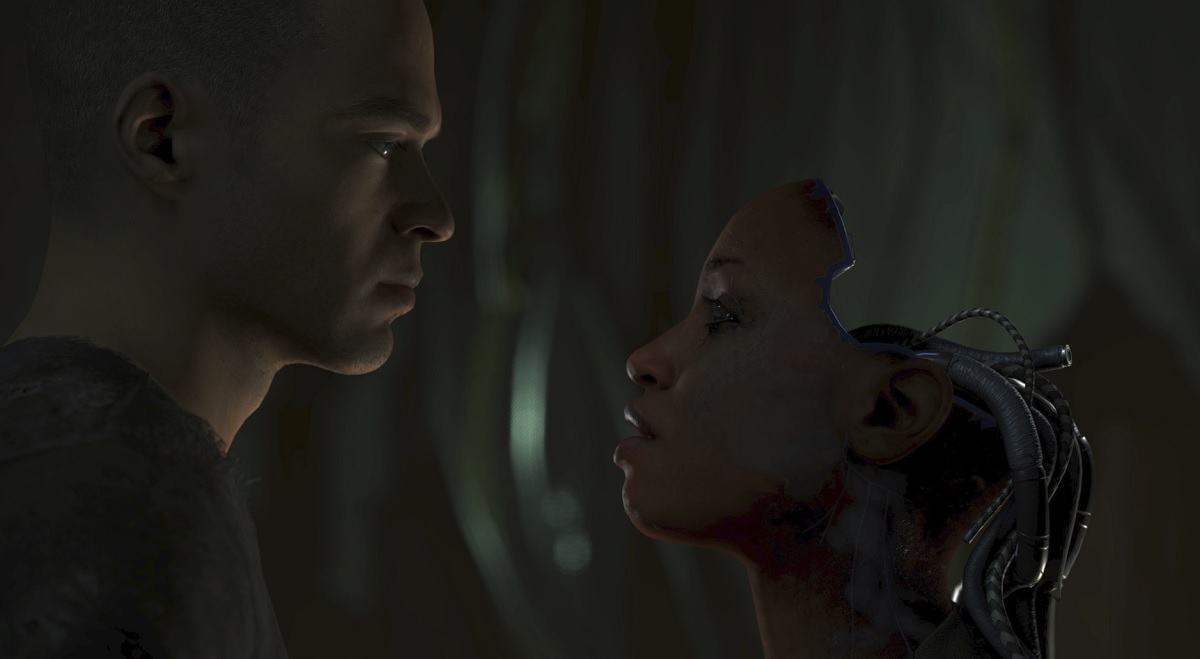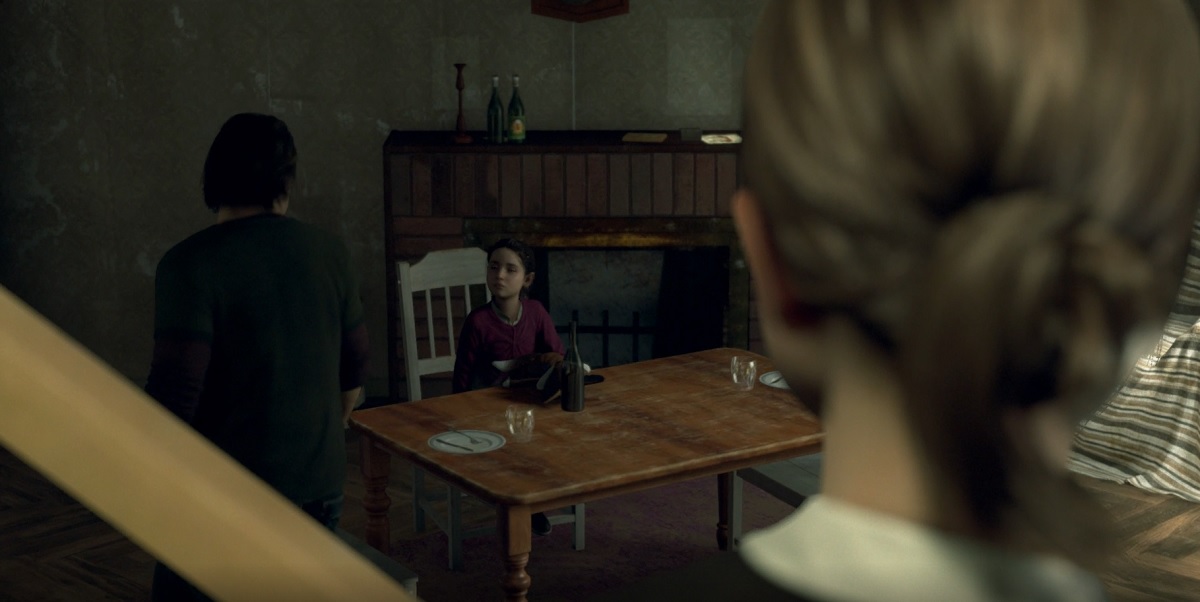As we careen toward human-like artificial intelligence in real life, popular fiction is stoking our fears. I was prepared to dismiss Quantic Dream‘s Detroit: Become Human as one more weak entry in this genre of the robots are taking over. But I wound up liking it.
Quantic Dream’s interactive cinema games have been criticized as being “movies with buttons.” It takes a certain kind of person to play titles like the French studio’s latest release, which debuts for the PlayStation 4 on May 25.
Those who enjoy visceral adrenaline shooters might want to skip it. But I found this game about human mistreatment of androids to be a riveting story and one of the finest games I’ve played this year. It kept me busy for dozens of hours, and it made me think.
This story has some minor spoilers — Ed.
I like the latest game from studio leader David Cage because it centers on just one moral dilemma, about how humans treat human-looking androids as either sentient beings or objects. It’s the kind of artificial intelligence story that I wanted from HBO’s Westworld. It raises the ethical question of whether it’s OK to treat human-like robots as slaves or disposable video game characters, or to recognize that they’re so realistic in looks and emotions that they deserve the same rights that people have.

Above: Markus meets another, less fortunate android.
Cage wants to remind us of the lesson we should have learned so long ago in Arnold Schwarzenegger’s The Terminator movies — that Skynet is about to become sentient and it’s going to be bad for us. And the closer that day comes to being a reality, the less we seem to care, as we can dismiss Cage’s androids as mere video game characters.
This game is different from Quantic Dream’s other games — Indigo Prophecy, Heavy Rain and Beyond: Two Souls — because it is much bigger in scope. Set in the city of Detroit in the year 2038, the story focuses on the use of artificial intelligence-equipped androids in our everyday life, as servants of our whims, passions, and worst desires. The relationship between the androids and humans is tense, in part because androids are so efficient that they have replaced humans in many jobs and driven the unemployment rate to 37 percent.
When the androids start behaving as if they are sentient beings, things get out of control. You step in to the roles of three androids — Kara, Connor, and Markus. You have a lot of choices to make, and you have to decide whether to earn your rights through violent overthrow or peaceful negotiation. The choices have consequences, and the story can branch in so many directions that you won’t know if you are on the “right path” or not by the time that you finish. You won’t know if your choices are fateful or inconsequential.
In each story, you discover what it takes for the android to become human.
Check out our Reviews Vault for past game reviews.
What you’ll like
The human and android characters look amazing, but also terrifying

Above: Detroit: Become Human’s Amanda is a leader at CyberLife.
In 2038, a company called CyberLife has created human robots that look and behave in amazingly realistic ways. The graphics of the characters look so good that I would dare say that we have crossed the “uncanny valley,” which posits that the more we try to create a realistic rendering of a human, the more we notice the small flaws and are disturbed by something uncanny about the facsimile.
You could stop and stare at any android — including the beautiful character Chloe who greets you as your servant at the start of the game — and wonder whether you’re looking at something real. You can see how tech companies can make the future seem so attractive while they do nothing to cushion the blow when androids start taking all of the jobs.
In its wider environment, Detroit does a good job of showing an amazing depiction of modern robots and the cracks in the facade at the same time. Your android will make a run to a store for you, passing by drunks, homeless people, dilapidated houses, and other signs that show people can no longer make a good living.
Sometimes, all this makes you wonder if you’re playing a horror game.
It has a riveting start

Above: Detroit: Become Human starts with Connor the android police negotiator.
Connor (played by Bryan Dechart) kicks off the game as a hostage negotiator. CyberLife sends him to assist the police to deal with an android who has murdered his host, shot a police officer, and is holding his master, the host’s daughter, as a hostage on the edge of a skyscraper. Connor has to quickly investigate and reconstruct what happened. The process of doing this is quite fun, as you have to use Connor’s abilities as a walking crime lab to understand more about the deviant android. Once you’re reasonably sure of what took place, Connor can go out on the ledge and negotiate. What happens in this scene quickly illustrates the angst in the society. Humans are treating androids as disposable, and the androids are becoming human.
You care about the androids more than the humans

Above: Kara the android has to protect a daughter in Detroit: Become Human.
Just like in Westworld (sorry for making so many comparisons), the humans can be evil and the androids are innocent. When Kara arrives at the home of her new owner, she must work for a deranged, unemployed man with a young daughter. She develops a relationship with little Alice, and then must do the man’s bidding as he screams at both the servant and the child.
Across Detroit, humans are malevolent. One tries to murder an android and pushes it to the breaking point. Humans turn androids into sex dolls, creating the perfect sex partner who never complains and never says no. The androids are nothing less than slaves, but the society at large doesn’t realize this because it views them only as machines. The humans also don’t realize the corrupting influence that befalls them as they become slave owners. By treating the androids as subhuman, the humans become less than human.
